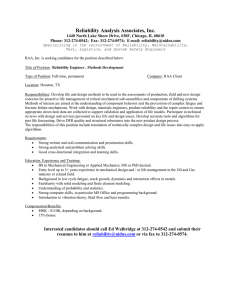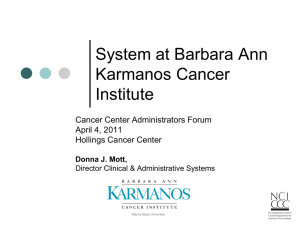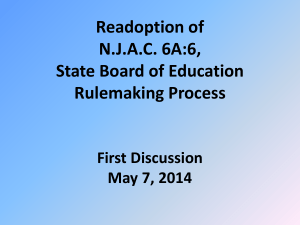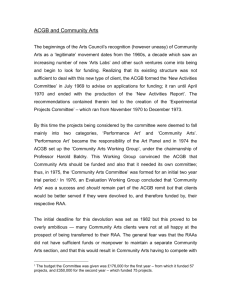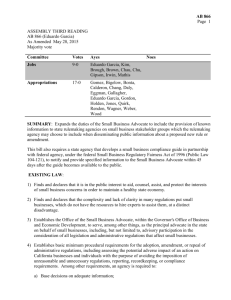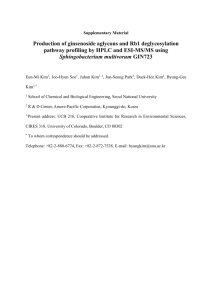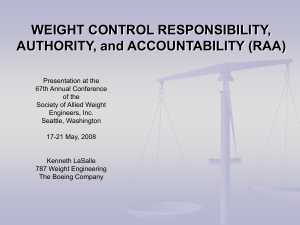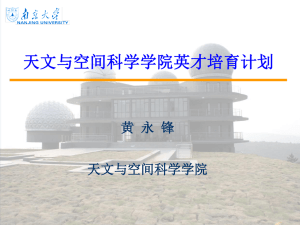regulatory accountable
advertisement
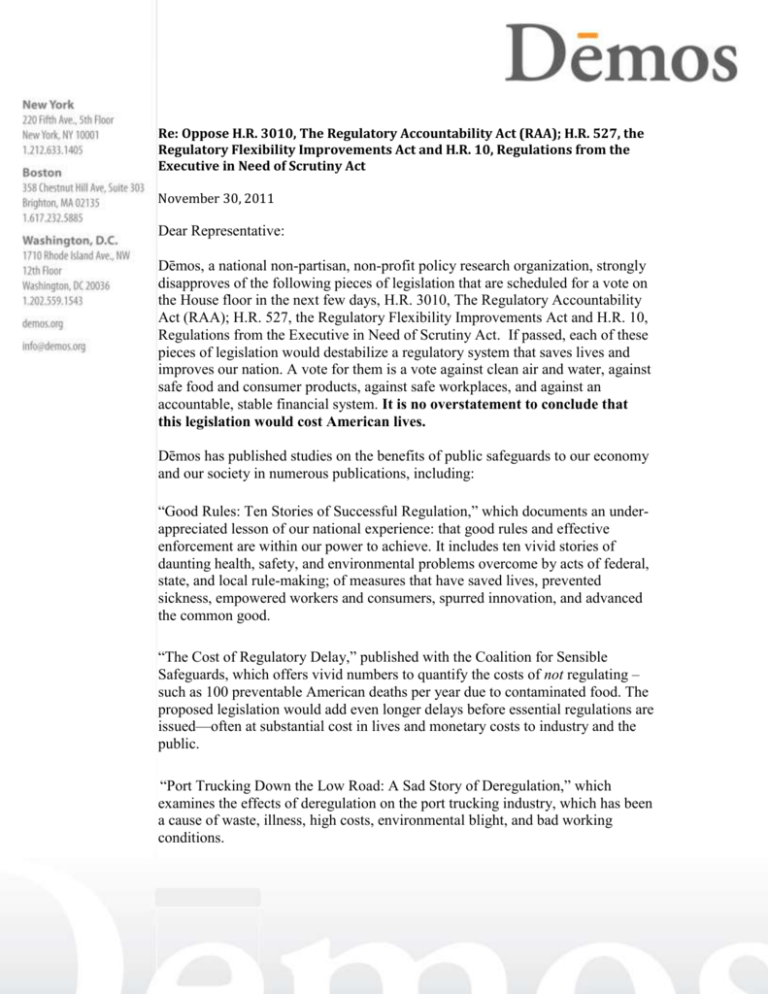
Re: Oppose H.R. 3010, The Regulatory Accountability Act (RAA); H.R. 527, the Regulatory Flexibility Improvements Act and H.R. 10, Regulations from the Executive in Need of Scrutiny Act November 30, 2011 Dear Representative: Dēmos, a national non-partisan, non-profit policy research organization, strongly disapproves of the following pieces of legislation that are scheduled for a vote on the House floor in the next few days, H.R. 3010, The Regulatory Accountability Act (RAA); H.R. 527, the Regulatory Flexibility Improvements Act and H.R. 10, Regulations from the Executive in Need of Scrutiny Act. If passed, each of these pieces of legislation would destabilize a regulatory system that saves lives and improves our nation. A vote for them is a vote against clean air and water, against safe food and consumer products, against safe workplaces, and against an accountable, stable financial system. It is no overstatement to conclude that this legislation would cost American lives. Dēmos has published studies on the benefits of public safeguards to our economy and our society in numerous publications, including: “Good Rules: Ten Stories of Successful Regulation,” which documents an underappreciated lesson of our national experience: that good rules and effective enforcement are within our power to achieve. It includes ten vivid stories of daunting health, safety, and environmental problems overcome by acts of federal, state, and local rule-making; of measures that have saved lives, prevented sickness, empowered workers and consumers, spurred innovation, and advanced the common good. “The Cost of Regulatory Delay,” published with the Coalition for Sensible Safeguards, which offers vivid numbers to quantify the costs of not regulating – such as 100 preventable American deaths per year due to contaminated food. The proposed legislation would add even longer delays before essential regulations are issued—often at substantial cost in lives and monetary costs to industry and the public. “Port Trucking Down the Low Road: A Sad Story of Deregulation,” which examines the effects of deregulation on the port trucking industry, which has been a cause of waste, illness, high costs, environmental blight, and bad working conditions. “Flying Blind: Airline Deregulation Reconsidered,” which links the acute troubles of U.S. airlines and their workers back to the decision, three decades ago, to lift most federal regulation of air travel. In its recent letter to the House Judiciary Committee on the RAA, the American Bar Association (ABA) Section of Administrative Law and Regulatory Practice, the most authoritative experts in this area, wrote “[f]or some two decades, many administrative lawyers have voiced concerns about the increasing complexity of rulemaking and have been urging Congress not to add unnecessary analytical requirements to the APA rulemaking process.” Rather than addressing these fundamental concerns, the RAA does exactly what the ABA warned against by adding more than 60 new analytical requirements to the Administrative Procedure Act, including mandating agencies to make nearly impossible determinations such as the “indirect costs” or the “cumulative costs and benefits” of a proposed regulation. In addition, this legislation would replace the flexibility of agency decision-making, long a virtue of the regulatory process, with a “one size fits all” approach that forces agencies to adopt the “least costly” regulation for businesses, even if this results in fewer health and safety benefits to the public. The RAA goes far beyond what Presidents have required in their Executive Orders on rulemaking by making the lowest cost criteria the primary grounds for agency decision-making. This is a profound change that overrides 25 existing statutes, including the Clean Air Act, the Clean Water Act, and the Occupational Safety and Health Act, designed to prioritize public health and safety while taking into account costs to regulated entities. The RAA will also significantly delay or entirely shut down our government’s ability to produce “major” or “high-impact” rules that typically provide our society with the most health and safety benefits. The bill imposes use of formal rulemaking for both categories of rules, defying a strong consensus among regulatory process experts that “the APA formal rulemaking procedure is obsolete” because previous experience has “shown that it leads to substantial delays.” The RAA exacerbates the current problems in the regulatory process in every way. Dēmos urges you to support the public interest, and vote no on HR 3010, HR 527 and HR 10. Sincerely, Heather C. McGhee Director, Washington Office Dēmos www.demos.org hmcghee@demos.org 202-559-1543 ext. 105
